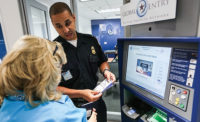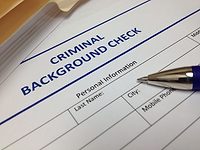Over the weekend, President Joe Biden published an op-ed which announced new actions the administration is taking to implement the Bipartisan Safer Communities Act (BSCA). The legislation, passed in June 2022, enacted several changes to the U.S. mental health system, school safety programs, and gun safety laws.
On March 14, President Biden signed an Executive Order which directed key members of his Cabinet to each submit, within 60 days, a report summarizing progress toward full implementation of BSCA. The same day, the President also detailed 13 actions the administration will take, or already have taken, to maximize the benefits of the legislation. The actions are listed below:
- In partnership with DOJ, the administration will work with state and local law enforcement leaders to solicit their collaboration on BSCA implementation priorities, such as: 1) increase state and local law enforcement agencies’ response rates to enhanced background check inquiries when someone under age 21 tries to purchase a gun; and 2) ensure that arrest and adjudication records include additional documentation of dating relationships to keep more guns out of the hands of domestic abusers.
- The White House, in partnership with DOJ, will convene state legislators and governors’ offices, urging them to enact laws allowing the federal background check system to access all records that could prohibit someone under age 21 from purchasing a firearm.
- DOJ is working with state and territory governments and local law enforcement agencies to increase their response rates to the federal background check system inquiries when someone under age 21 tries to purchase a gun.
- DOJ is training federal law enforcement and educating state and local law enforcement and prosecutors on the need for additional documentation of dating relationships in domestic abuse cases.
- The Secretaries of HHS and ED will urge governors to use BSCA and Medicaid’s funding to help schools address the trauma and mental health challenges resulting from gun violence.
- HHS will educate health and social service providers, community leaders and other individuals on the effects that gun violence trauma can have on communities.
- HHS will clarify how early childhood providers can use BSCA funding to address mental health and gun violence trauma.
- HHS will highlight stories of how communities are effectively using BSCA’s mental health funding to help those impacted by gun violence.
- HHS will meet with trauma program grantees and select community members and providers to gather community-level data pertaining to the link between exposure to gun violence and trauma.
- As part of the school-based services Technical Assistance Center established under BSCA, HHS and ED will jointly develop resources for states and schools regarding how schools can use Medicaid to fund school-based health services to help students dealing with the physical and emotional impacts of gun violence.
- The Department of Homeland Security (DHS) will launch a dedicated public campaign to bring greater awareness to SchoolSafety.gov and its available resources and evidence-based practices.
- ED has taken several steps to help states and school districts make effective use of BSCA’s $1 billion Stronger Connections Grant Program to improve school safety.
- To help communities maximize the benefits of BSCA’s community violence intervention funding, DOJ hosted a five-part webinar series to help local leaders use evidence-informed strategies to reduce violence.



